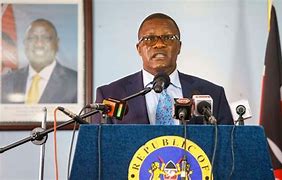Kenya has embarked on an ambitious project to lay down 100,000 kilometres of fibre optic cable to enhance Internet connectivity nationwide.
This initiative, announced on Tuesday, is part of the Kenya Digital Economy Acceleration Project (KDEAP) and represents a significant collaboration between the government and private sector stakeholders.
Read also: Infratel opens ‘Digital House’ to enhance Zambia’s digital economy
Project Overview
The Kenyan government will construct 52,000 kilometres of the network, while the private sector will deploy the remaining 48,000 kilometres.
This public-private partnership is expected to accelerate the rollout of broadband infrastructure, significantly impacting sectors such as education, healthcare, and e-commerce.
According to Eng. John Kipchumba Tanui, Permanent Secretary of the State Department of ICT and Digital Economy, “Robust connectivity is essential for delivering government services and achieving the Vision 2030 agenda.”
The project aims to improve access to digital services by connecting 40,000 schools, 20,000 government institutions, and 13,000 healthcare facilities.
The total investment for this initiative is projected at approximately $600 million. Key players in this endeavour include major telecommunications companies like Safaricom, which has already laid down 13,000 kilometres of fibre as part of its contribution to the project.
Socio-economic impact
This extensive fibre optic network is crucial for bridging the digital divide in Kenya and ensuring that underserved regions gain access to high-speed internet.
Eliud Owalo, Minister of ICT and Digital Economy, noted, “We have already held meetings to discuss and agree who deploys which component of this fibre”.
The collaborative approach aims to enhance connectivity, reduce internet costs, and improve e-government services.
The World Bank supports the KDEAP and focuses on fostering a knowledge-based economy in Kenya. The initiative reflects Kenya’s ongoing efforts to position itself as a leader in digital innovation within Africa, often referred to as Africa’s “Silicon Savannah.”
Despite significant progress in ICT development, challenges remain in reaching remote areas with limited internet access. This project seeks to address these gaps effectively.




